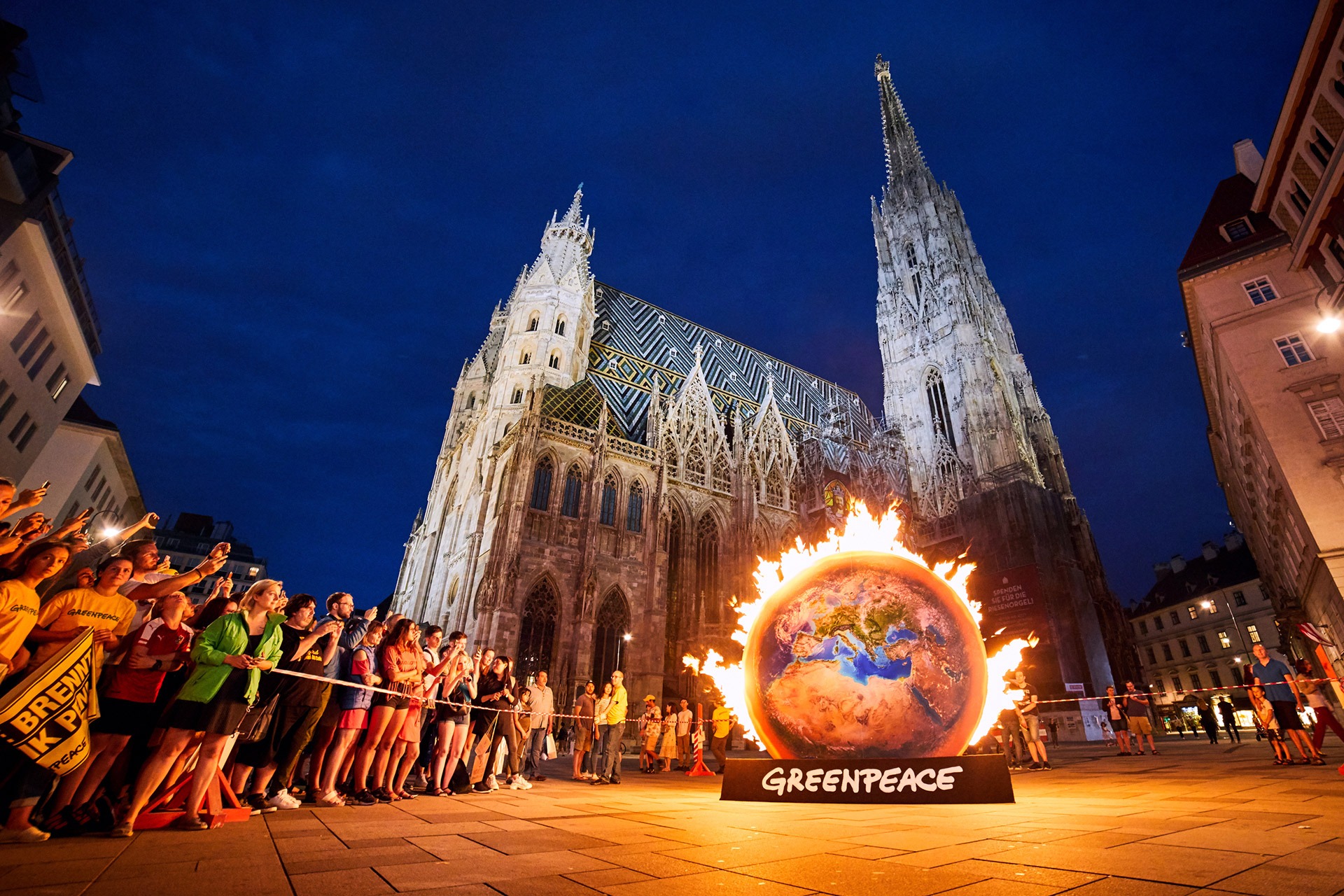photocredit title image: Mitja Kobal / Greenpeace
The climate crisis is here and must be fought - no one disputes this fact anymore. However, opinions differ as to who bears responsibility for this global crisis and needs to take climate action. As OMV Group CEO Rainer Seele put it: "I produce the gasoline, but you cause the emissions". But can responsibility be shifted so easily to consumers?
The fact is that a system based on fossil fuels has been built over the last centuries. We use fossil fuels to heat our home, drive to work, fly on holiday. But it has been known since the 1970s that burning fossil fuels is changing our climate system, and thus has the potential to destroy our livelihoods. The first IPCC report in 1990 brought together the world's scientific findings, and the 1992 decision on the UN Framework Convention on Climate Change established an international framework for action to combat the climate crisis. It has been the political and scientific consensus for three decades that greenhouse gas emissions must be reduced to zero. What contribution have fossil fuel companies made to reducing emissions during this time?
Only 100 companies have been responsible for over 70% of industrial greenhouse gases since 1988. OMV is among them. Oil and gas is still being extracted from the earth, which of course also has to be sold. Accordingly, it is important for energy companies that the oil and gas business is regulated as little as possible and that consumers continue to buy fossil fuels. OMV is investing heavily in lobbying, marketing and PR. Around half a million euros are spent alone on lobbying at EU level. Tens of millions more are spent on advertising campaigns in order to preserve the positive image of fossil fuels and to continue to present them as a necessary solution to energy demand. This keeps the current fossil fuel system alive and drives consumers into a dependency - for example, whoever installs a gas boiler today will continue to use it for heating years or even decades from now. Consumers often do not get the chance to choose sustainable and green systems or solutions. Poor public transportation and expensive electric cars, for example, contribute to the fact that for many consumers, the only viable option is the combustion engine. Here, politics must set the rules for a system change - but politics is influenced by corporations like OMV, which have a clear interest in keeping their sales of fossil fuels high in the future. The corporations want politicians to block regulations in favor of renewable energies and sustainable solutions. And all this is happening while greenhouse gas emissions continue to rise.
So blaming consumers because they buy the gasoline is not only too short-sighted, but also simply a cynical reversal of responsibility. Because corporations like OMV are deliberately driving consumers into dependence on the classic combustion engine and alternatives do not exist or are too expensive. In addition, the combustion engine is artificially cheapened by tax privileges such as the diesel privilege in Austria. We therefore need a sustainable reorientation from all sides - politics, companies like OMV and consumers. Only if we all work together and phase out fossil fuels do we have a change for a sustainable future.

